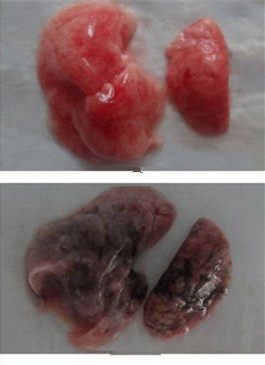Fudan: Rat's lungs not blackened by air
 0 Comment(s)
0 Comment(s) Print
Print E-mail Shanghai Daily, November 20, 2013
E-mail Shanghai Daily, November 20, 2013
Fudan University yesterday dismissed a report that an experiment conducted there found that exposure to air pollution for just six days turned a rat’s lungs black, irreversibly damaging them.
|
|
|
Fudan University yesterday dismissed a report that an experiment conducted there found that exposure to air pollution for just six days turned a rat’s lungs black. [File photo] |
The news report, posted on chinanews.com, said the rodent was exposed to PM2.5 — fine particles that are especially harmful as they penetrate deep into the lungs — for six days.
It was circulated on the Internet, creating concern.
“The conclusions of the news report are exaggerated,” insisted Song Weimin, professor of School of Public Health of Fudan University.
“The rat didn’t inhale air containing PM2.5 for six days. We dripped concentrated PM2.5 solution on the rat’s lung on three occasions over six days.”
Song said the method was totally different from the way that a human inhales air containing PM2.5 in daily life.
Furthermore, the level of PM2.5 was far higher than that found in the air, added Song.
The test, with a Guangzhou-based pharmaceutical firm, was an attempt to discover if its products could be effective against PM2.5, said Song.
“The experiment is based on animals and was not a clinical trial. It cannot reflect the effect of PM2.5 on a human’s lungs in daily life,” Song said.






